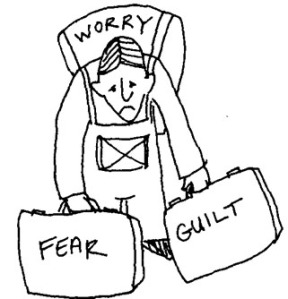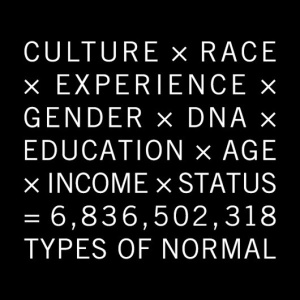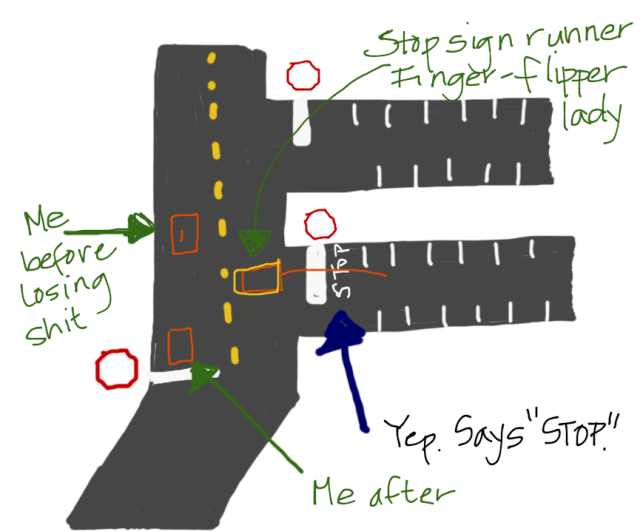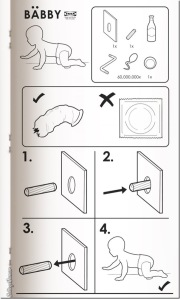TRIGGER WARNINGS: discussion of murder, abuse, PTSD, mental illness, suicide
COMMENT POLICY: I will monitor comments on this post aggressively and will not publish any comment that attacks ANYONE, that contains unsupported statements represented as fact, engages in wild speculation, or is in any way abusive. Thoughtful, polite, reasoned dissent is welcome and encouraged.
As some of you may know, this blog mostly is about my experiences as the parent of an autistic child. Sometimes, I talk about autism in the broader context, but I make no claim to being an advocate for the autistic community. I advocate for my daughter (and woe is the person who pisses me off when it comes to her), but my primary goals in writing this blog are to connect with the autism community and to find the support and education I need to be the best mom I can. I try to pay forward what I learn by sharing my experiences in the hope that others benefit from that. I believe that, to be the mom I hope to be, I must learn from other parents and from autistic persons. I believe that with my whole heart. I believe that I have to accept that I am sometimes (although unintentionally) ableist in my view of the world, so that I keep my mind open to ways in which I can change my behavior to effect change and role model change for others. I want my blog to be a welcoming space for people who want to have a candid, intellectually honest, productive discussion about … stuff. But, “welcoming” doesn’t always mean “comfortable.” I do not accept the premise that autism is all rainbows and joy and special talents. Life isn’t all those things. So, there are times – like today – when what I want to write about is a time when autism hurts.
For me, being the parent of an autistic child is challenging on many levels, but it is not what I would describe as extreme. In most respects, I find it quite rewarding. Still, meeting Helene’s needs requires a lot of compromises our family had not considered making before she picked us as her world tour guides. Sometimes, the choices are insignificant in the larger scheme of things – McDonald’s and frozen pizza instead of kale and quinoa. Sometimes, though, the choices are very, very big and very, very difficult. For example, Helene needs about fifteen hours a week in therapy in addition to time spent at school. To meet this need, my husband and I had to reexamine decisions we made about where and whether we worked, where we lived, and how we would balance caregiving responsibilities. You know – all the stuff we very carefully planned before deciding to have another child. We had to examine these life-altering questions not in succession with temporal buffers on either side but ALL AT ONCE. We had to examine these questions within the confines of very limited choices. That is stressful. It is overwhelming. It was the subject of much disagreement. It was frustrated by our own learning curves. It had cascading consequences on personal, professional, financial and social levels. The difficulty was not because we railed against autism, refused to “accept” it or to “accept” our daughter. She’s our daughter. And, these difficulties emphatically were not something for which we blamed Helene (or anyone) – there was no blameworthy event (despite the never-ending “findings” published all over the Internet that attempt to place blame on someone for autism). That, however, does not make the difficulties any less real, any more avoidable, any less stressful or painful. It also is not possible to ameliorate (or effective to deny) the causal link between Helene’s autism and the way our lives changed after her diagnosis. That is a fact, and that evolution continues as we all age and our collective needs and capabilities change.
Also a fact: It was time and a little luck through which we found a balance. For now. But, I send my gratitude out into the universe everyday, because neurology seems to me a fickle, fickle thing. One day, it fires the neurons that lead to an explosion of expressive language and the next day it fires the neurons that lead to excruciating sensory pain. In Helene’s case, what it has not lead to is physical aggression toward others. It may not ever. Is it because she is not neurologically wired that way? Is it because of how we nurture her? Is it because she has enough language and expressive communication that we almost always understand her and can meet her needs? Is it a combination of those? I cannot say. I know with certainty only that our family dynamic is not nearly as complex as it might be if Helene was harming herself or anyone in our home. And, yet, I struggled to maintain my own emotional balance until we got our supports in place (and even thereafter) to help Helene on her journey.
When I say “supports,” I’m using this phrase loosely. We are fortunate to live in a state that compels health insurance providers to cover ABA therapy so that we do not have to pay entirely out of pocket. Of course, this doesn’t guarantee that Helene receives quality ABA therapy – believe me. But, it’s a start. And, we are fortunate that both my husband and I have law degrees, know where and how to find and interpret important laws to ensure Helene’s education and health care, and make us unafraid and well equipped to challenge schools and insurance companies that do not do what they’re supposed to do. We are fortunate to have the love and support of a few close friends and family members who help us with respite, finances, and through moral support without judgment. We are fortunate that Helene’s flavor of autism is such that we, as a family, have found ways to develop and express a strong emotional bond with each other.
But, I know quite a few parents who have a very, very different experience with their children – who do not get to balance out difficult behaviors with adorable ones, to “fix” an escalation of harmful behaviors with a cuddle or to benefit from available therapies – because their children have a severe form of autism marked by communication through physical aggression. I know parents who live with children whose only expressive communication is to scream for hours on end; to bite, scratch, hit and kick objects and people; to pick themselves bloody and raw; to consistently lose control of their bowels; to perseverate on or continually attempt to touch a parent’s, sibling’s or stranger’s private parts. So many of these parents lack access to resources such as 1:1 aides, respite care providers, therapists or even decent IEPs or school placements for their children. So many of these parents struggle with sleep deprivation, acute stress, acute anxiety, depression, and isolation. So many of these parents cannot hug their children, hold their hands, comb their hair or sing them songs because sensory sensitivities make that painful for the child. So many of these parents never hear, see or feel the words “I love you” coming from their child.
It’s an uncomfortable truth that some autism advocates do not like to discuss – the connections between aggressive / violent behavior, parental stress, frustrated or preempted emotional bonding and autism. In fact, some advocates’ distaste for the topic is so strong and so severe, they shame parents who try to raise the issue into silence.
Which brings me to Kelli Stapleton. In full disclosure: I know Kelli. I can’t say we were more than Facebook friends, but we connected through a parent-support community, and I was familiar with Kelli’s work to find services for her family and, particularly, her autistic teenaged daughter, Isabelle. I followed Kelli with interest, because I don’t meet many parents of female autistics, and I appreciated having insight into Kelli’s experiences with Isabelle. Kelli was in some ways addressing years still in my future. I’m a planner-aheader. That’s a thing.
One year ago, almost to the day, Kelli shocked many – perhaps most of all those of us who looked up to her as a tireless advocate for her daughter under some very difficult circumstances – when she tried to kill herself and Isabelle by carbon monoxide poisoning. Isabelle fell into a coma but recovered. Kelli suffered less serious injuries and was arrested almost immediately. Kelli’s husband and Isabelle’s father, Matt, filed for divorce and has custody of Isabelle and the family’s two other young children.
This week, Kelli Stapleton plead guilty to a charge of first-degree child abuse. Kelli has not yet been sentenced, but the Michigan sentencing guidelines indicate that Kelli serve anywhere between a year and the rest of her life (with the possibility of parole) in jail as the result of her guilty plea. There are a complex set of factors the judge must consider when determining the appropriate sentence. The judge will hear arguments from both the District Attorney and Kelli’s defense counsel, as well as consider a probation department report, to determine the sentence. Kelli remains in jail pending sentencing.
The District Attorney originally charged Kelli with attempted first-degree murder to which Kelli entered a plea of not guilty by reason of insanity. A psychiatrist (who spent 20 hours observing and evaluating Kelli) was prepared to testify that Kelli suffers from post-traumatic stress disorder, mood disorder and the effects of traumatic brain injury and that Kelli was legally insane at the time she committed these acts (although she was found competent to stand trial). Kelli’s traumatic brain injury was the result of one or more assaults on Kelli by Isabelle, whose autism features aggression. Isabelle sometimes directed her aggression at Kelli and was increasingly directing it at her younger sister.
These are the facts, as they have been reported through news outlets, and which I know from reliable sources to be accurate. Some news outlets do not stray far from these facts. Others report the facts in a way that emphasizes Kelli’s depression and Isabelle’s aggression, which many people interpret as making Kelli appear sympathetic. I can’t and won’t say that is an unreasonable interpretation. Some people interpret the expression or appearance of sympathy for Kelli as excusing or minimizing Kelli’s acts as an understandable, forgivable or condonable response to Isabelle’s behavior (or to Isabelle, in general). I disagree with this interpretation, because I do not think my ability to look at Kelli’s situation and acknowledge or feel saddened by her desperation and irrationality in any way ratifies Kelli’s conduct as acceptable, and it does not prevent me from feeling angry at Kelli or from feeling concern, fear and heartbreak for Isabelle. I don’t ascribe such critical thinking to the media. I interpret the media’s emphasis as calculated only to seize upon details that generate the most controversy, the most discussion, the most interest and, thus, sell the most papers.
Whatever the media motivation, however, scattered throughout social media (which sometimes masquerades as “journalism” or “research”) is an enormous range of opinion about the blameworthiness of Kelli’s act. Not surprisingly, a lot of the writing expresses very emotional reaction to what Kelli did. The stronger the emotional reaction, the stronger the comments that follow – especially from those whose own emotional reaction is different. For an example of what I’m talking about, take a look here and here. If you are a brave soul and can suffer silently through false analogies, histrionics, and circular logic, go read the comments under The Thinking Person’s Guide to Autism’s recent post about Kelli’s plea. I’m not linking to it, because while there is a lot of editorializing going on over there, there is not much that might be described as thoughtful.
I have strong, complex and somewhat conflicting feelings about what Kelli did. My feelings are grounded in my experiences as the mother of an autistic daughter and a neurotypical son, as a person who struggles with depression and anxiety, as a former lawyer, as the child of a bipolar parent, as the child of an abusive parent, as a wife, as a sibling and as someone who knows Kelli (even if tangentially). It is not possible for me to separate myself from my experiences, so they necessarily inform my feelings. I understand, though, that this makes my feelings about Kelli’s actions unique to me. True, some may have similar feelings. That alignment, however, shouldn’t be mistaken for agreement. That one person feels as I do is not the product of a meeting of minds but a simple coincidence and possibly shared experiences. Conversely, some – perhaps many – will have a very different perception. That shouldn’t be mistaken for disagreement. That a person does not feel as I do proves only a difference in perception of – not quality or quantity of – experience.
This is one of the many ways in which feelings differ from opinions or conclusions drawn from evidence or facts. Feelings are not “right” or “wrong.” They just are. Feelings may be stronger or weaker but not qualitatively different from a standpoint of accuracy. Consequently, feelings can’t be negotiated or debated in a meaningful way (not that we’ll ever stop trying). You are not me; I am not you, and only we know for sure what really lives in our respective hearts.
You may believe in your heart that what Kelli did is forgivable or that she deserves some leniency. You may believe in your heart that she can never, ever be forgiven. Both positions are “right” inasmuch as they represent the genuine emotions of the persons expressing them. Discussing our feelings about what Kelli did might us feel better about ourselves. It might even be therapeutic to listeners/readers. But, that conversation is limited in the scope of its effect: you vent, I vent, but we don’t change anyone’s mind, because that’s not where our feelings are. Changing minds is a critical first step to changing behavior.
So, what I want to talk about today isn’t anyone’s feelings about what Kelli did or even what the consequences for her actions should be. I have to believe that we (as a society) feel that no parent should see murder (or suicide) as a reasonable, rational resolution of a difficult – even nightmarish – situation. The experiences that brought us to that place will vary widely, but the experiences all lead to the same destination: How do we keep this from happening ever again?
Of course, this is where the conversation tends to shatter into vehement disagreement. I’ve read blog posts and articles and participated in online discussions (if being chastised, berated and yelled at can be considered a dialogue) where the opinion expressed is that discussing anything other than the complete and unqualified condemnation of a parent who tries to murder an autistic child is a form of ableism, because discussing anything else (including why the horrible tragedy highlights the continued need for better supports) “justifies” the parent’s conduct and devalues or dehumanizes the autistic person.
One thing I read over and over again is that the media’s reporting on a parent’s murder of a disabled child is biased in favor of the parent, because it is socially acceptable to view the disabled person as less than human and, therefore, less than deserving of life. Indisputably, there are people who hold a negative view of disabled persons, particularly autistics. How else can one explain something like this or this? Statistically, this bears itself out. Developmentally disabled persons are 4 to 10 times more likely to be crime victims than are non-disabled persons. (Sobsey, D., D. Wells, R. Lucardie, and S. Mansell. 1995. Violence and Disability: An Annotated Bibliography. Baltimore, MD. Brookes Publishing.) This is a horrific statistic. The treatment of disabled persons as less than human, as less deserving of a life free of cruelty, shame, judgment or bullying, or as less worthy of love, kindness and friendship is intolerable. Any action that changes the idea that mistreatment of another human being “okay” is a worthwhile endeavor. So, I understand the appeal of the idea that narrowing the dialogue following the abuse or murder of an autistic person to condemning the behavior of the abuser/murder will get across a broader message that we, as a society, do not accept it, condone it, forgive it or excuse it.
But, the most ardent proponents of this position are swayed by the false charms of its symmetry. Narrowing the conversation might challenge societal perception of the moral or ethical culpability of the parent (although no one seems to be able to point to any empirical evidence of this), but that does not reach the ultimate goal, which is to change the public’s perception of the value of the life of a disabled person. Condemnation is reactive, not proactive. Condemning the parent is too little too late and focuses only on a result not a cause. Communicating a message that life is valued is done through actions that proactively preserve that life.
More than 50% of all cases of abuse of disabled persons are perpetrated by family members or peers with disabilities. Disability professionals (i.e., paid or unpaid caregivers, doctors, and nurses) are generally believed responsible for the other half. (Sobsey, D. and T. Doe. 1991. “Patterns of sexual abuse and assault.” Journal of Sexuality and Disability, 9(3): 243259.) In other words, disabled persons face the greatest risk of abuse not at the hands of broader society but at the hands of the people with whom they spend the most time and have the closest relationships.
According to a report by the World Health Organization on prevention of child abuse and neglect:
A number of personality and behavioral characteristics have been linked, in many studies, to child abuse and neglect. Parents more likely to abuse their children physically tend to have low self-esteem, poor control of their impulses, mental health problems, and to display antisocial behavior [Citation omitted]. … Many of these characteristics compromise parenting and are associated with disrupted social relationships, an inability to cope with stress and difficulty in reaching social support systems [Citation omitted]. Abusive parents may also be uninformed and have unrealistic expectations about child development [Citations omitted].
The Journal of American Academy of Pediatrics notes:
Several studies reported increased psychological distress, including depression, anxiety, and components of stress, such as decreased family cohesion and increased somatic complaints and burnout, among parents of children with autism and challenging behaviors.” – Pediatrics Vol. 119 No. Supplement 1 February 1, 2007. pp. S114 -S121. Journal of American Academy of Pediatrics
In this article from Disability Scoop:
Overall, researchers found that families dealing with aggressive behavior struggled with social isolation, concerns about the safety of people and property, lack of respite care and limited professional supports as well as the added expense of repairs and home modifications. What’s more, the families were concerned about being able to find alternate housing for their child with autism as they aged, according to the study published online this month in the journal Focus on Autism and Other Developmental Disabilities.
Though the study was small, researchers behind the report emphasized that little has been done to understand the daily experiences of families coping with autism and aggression. Their findings suggest that there’s far too little support for individuals with aggressive tendencies and those affected by them.
Parents described an “unbearable” level of exhaustion, with at least one mother comparing her situation to being in “jail for life.”
While generally speaking families were happy with the care their child received for core symptoms of autism, most said professionals offered only limited knowledge and assistance for dealing with aggression either through medication or behavior supports. One family was actually kicked out of a home-based program for individuals with autism because of the boy’s aggression, with officials concluding that the environment was not “safe or productive.”
Let’s rephrase this:
Parents with low self-esteem, poor impulse control and mental health problems experience compromised parenting, disrupted social relationships and an inability to cope with stress or reach social support systems and, as a consequence, are more likely to physically abuse their children. Parents of children with autism and challenging behaviors are increasingly likely to experience the factors that elevate the chances of child abuse.
If, after a parent attempts to murder or murders her autistic child, the only conversation is about condemning or vilifying the parent, how will that conversation impact the population most likely to physically abuse autistic persons? The population already suffers from low self-esteem, poor impulse control and mental health issues, so how does shaming someone who might see herself in Kelli Stapleton, improve the at-risk parent’s self-esteem, impulse control, mental health, disrupted social relationships, ability to cope with stress or access social support systems? The answer is: it does not. Rather than mitigating any of the factors that increase the likelihood of abuse, it exacerbates them.
As a general rule, parents who feel good about themselves, who have sound support systems, and who are not experiencing constant, prolonged stress refrain from abusing their children not our of fear of society’s judgment or criminal punishment but because they would perceive the abuse as repugnant to their feelings of affection and responsibility toward their children. When a parent reaches the point at which those feelings of affection and responsibility morph into the twisted idea that ending a child’s life seems like a plausible or – heaven forbid – loving option, the parent is unquestionably emotionally – and perhaps spiritually – broken. Condemning a broken person does not stop the broken person from an irrational act nor does it stop another from breaking any more than telling a depressed person to “snap out of it and smile” or a paralyzed person to “just get up and walk” changes their mental or physical states.
What shaming does do is create fear, and fear is certainly a powerful deterrent. But, what the parent experiencing suicidal or homicidal ideation fears isn’t the punishment that follows her acts, especially if she reasons she won’t be around for punishment or that the punishment will be “worth it” if she’s “saving” her child from pain. What she fears is admitting that she’s broken; admitting that she thinks murder is a plausible solution to pain. Why is she afraid? Because somewhere in her rational mind she realizes the import of what she’s going to do. Because she’s seen the zero-compassion-policy movie, and the ending is more frightening to her than the one she’s considering. Because there are parents who are so unbelievably challenged, frightened, isolated, conflicted, depressed and irrational that jail and death are convincingly better options than living.
The way we convince society that the lives of autistic persons are worth living is by creating spaces in which autistic persons can experience a quality life. To do that, we must enable the caregivers of autistic people to create those spaces by developing and maintaining effective and accessible resources, such as education, respite, housing, employment, psychological and behavioral therapies, medical care and legal assistance. I want to emphasize effective and accessible. It is not enough to say that a parent in distress can “call 911” or a hotline or to remind a parent in acute crisis that going to jail is “worse” than what she’s experiencing right now. It is not enough to say that a family has a 1:1 aide, when what that aide if legally allowed to do is very, very little. Those are not resources, especially when hospitals are denying beds to patients, first-responders are ill-trained and ill-equipped to respond to autistic aggression (and see here and here and here), and emergency services are short-term solutions (at best).
If we want to change the story about autism from one where parents or caregivers abuse or murder autistics in their care, where autistics are arrested, beaten or killed by first responders or where autistics are refused treatment by hospital and doctors, then we have to change the setting in which the story takes place.
To value an autistic person’s life is to protect it. To protect that life is to take the steps necessary to prevent that life from being seen as valueless, burdensome or tragic. By creating spaces in which autistics and caregivers are educated, employed, therapeutically and emotionally supported, we decrease exhaustion, stress, isolation and hopelessness so we effectively mitigate the factors that underlie abuse. By creating spaces for caregivers and autistic persons that are safe, loving, nurturing and supportive environments, we do indeed change the story’s setting.
To refuse to have the conversation – at any time – about a need for prevention of abuse through services and supports does not protect autistics; it is to be complicit in the continued marginalization and isolation of autistics and those who provide their care.
Dedicated to the entire Stapleton Family, whose suffering need not be in vain and who I hope now find themselves on a path toward healing.














